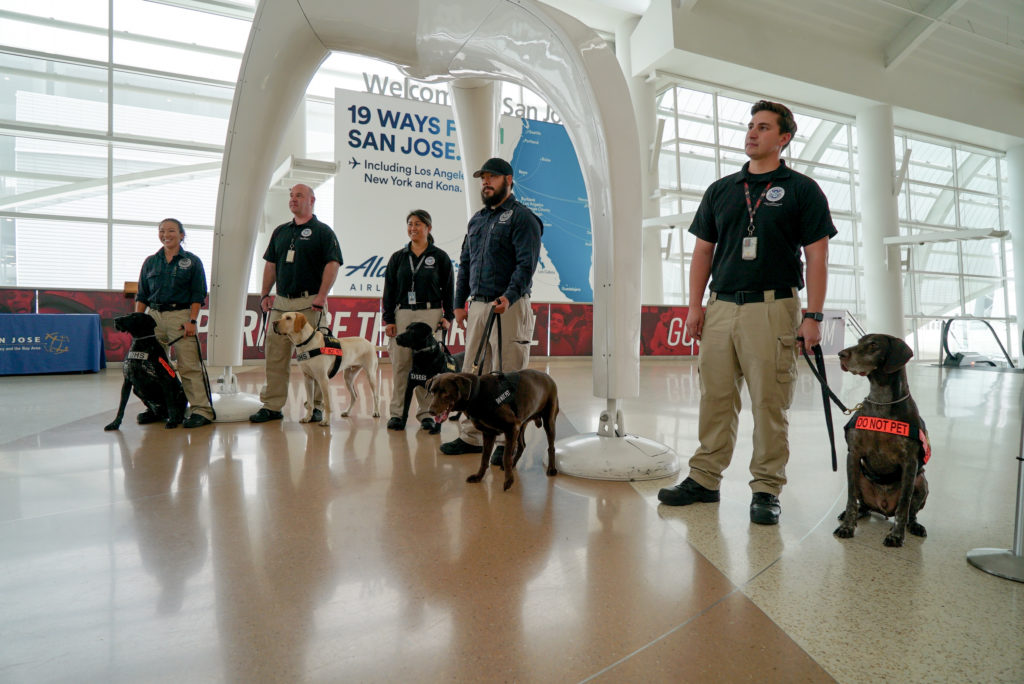The US Transportation Security Administration (TSA) gave a demonstration of its passenger screening canines (PSCs) on Thursday (Oct 25) at Norman Y Mineta San Jose International Airport (SJC), California.
The PSCs are a key asset for the TSA and have been trained to detect explosives and explosive materials in busy transportation environments. They work with a handler searching travelers and their belongings in the security checkpoint, contributing to the efficiency and effectiveness of screening operations.
John Aitken, director of aviation, SJC, said, “Canines are an important layer in SJC’s security and customer service programs and we’re proud to highlight the important work they and their handlers do every day in serving our travelers and employees. Passengers enjoy seeing the dogs working as they experience an enhanced level of security as they move to and from their flights.”
The PSC teams capably navigate large groups of travelers to pinpoint the source of an explosive odor, even if the source is mobile. The handlers are trained to read the canine’s change of behavior when it indicates an explosive scent has been detected. If a dog alerts its handler to the presence of explosive odor, the TSA agent follows an established procedure to resolve the alarm.
Because of the threat posed by explosives to the aviation system, PSCs are regularly tested to ensure they maintain a high standard of operational effectiveness. This continual training allows for all teams to be a reliable resource in detecting an explosive threat, maintaining proper acclimation within the airport and mitigating potential distractions in a busy transportation environment.
Currently, TSA has more than 320 PSC teams that work primarily at airports across the USA. These teams are also trained to work in non-aviation transportation venues.

